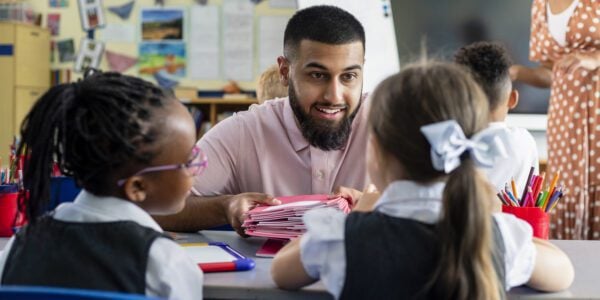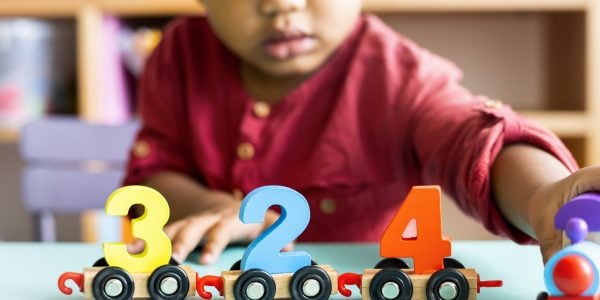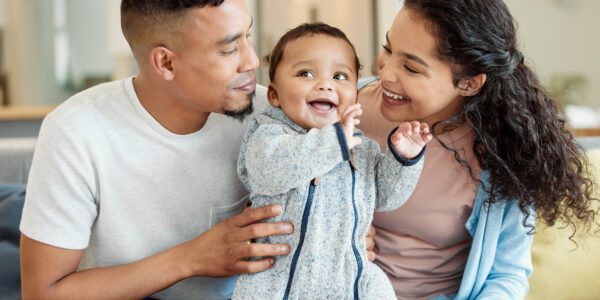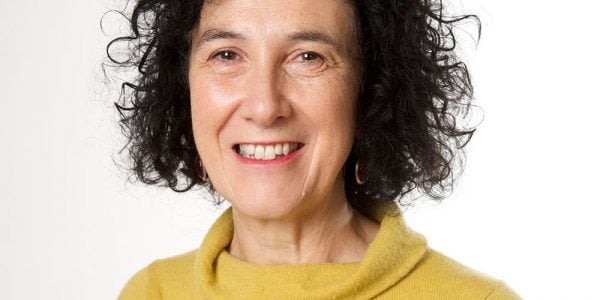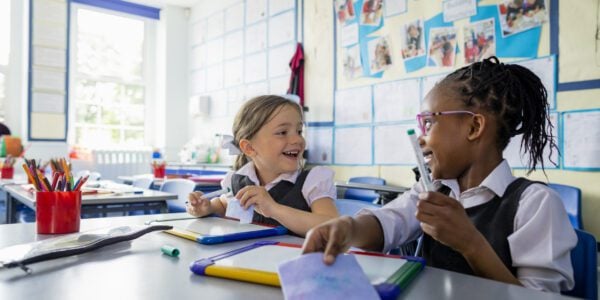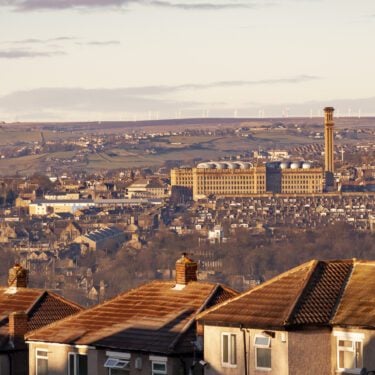
28/04/20
4 min read
An estimated 158,000 babies have been born since the first case of COVID-19 was identified in the UK. They are being born into a family, neighbourhood, city, region, country and world that is unrecognisable from that of a few months ago.
The early years of a child’s life are a period of momentous change in their physical, cognitive, emotional and social development – a time of joy and discovery for parents, grandparents and the wider family. But many parents are also beset by anxiety and uncertainty about present circumstances and the future that lies ahead for their children. This is particularly the case for the growing number of families where parents have lost their jobs and are facing poverty, and for those who are insecurely housed or have health difficulties. Single parents and those caring for other family members are likely to be hit hard. This global pandemic and its economic and public health consequences are intensifying and entrenching existing patterns of vulnerability, poverty and inequality, particularly for Black and Asian Minority Ethnic families and younger generations. This will flow through to the experiences and life-chances of young children where inequalities begin from the earliest age and cast a long shadow.
Today, there are close to 4 million children under the age of five in the UK. Even before the pandemic hit, these children were experiencing a strikingly different childhood from the previous generation. New and disruptive forces – social, demographic, economic, scientific and technological – are changing the context and nature of young children’s experiences and life-chances. This is now being compounded by self-isolation and social distancing measures, including the partial closure of early years and childcare settings, which are likely to have profound implications for family relationships and the well-being and education of children. Families are spending more intense time together as their lives and worlds shrink into their homes. This extra time spent at home could exacerbate existing inequalities among children as parents try to juggle work, childcare and other pressures. It could expose more young children to domestic abuse either directly or indirectly and professionals are having to make rapid decisions about the support that can be provided to those who are vulnerable. But it may also bring some benefits as parents have more time to play, talk and share activities with young children. As in other policy areas, the pandemic, and what it reveals about UK society, may well lead to some fundamental questions about modern family environments and the well-being of young children.
We will consider some of these emerging impacts on young children and their families as part of the Changing Face of Early Childhood, our new series of short reports, events and engagement in 2020/21. Conceived before the pandemic, the series will draw on an extensive body of academic research on the early years, some 80 studies funded by the Nuffield Foundation over the last eight years, alongside other key research. This research encompasses work on how children develop their cognitive, social and emotional skills, both in the home and in formal and informal early education and childcare settings. It analyses changing family patterns and working lives and the risks of poverty and vulnerability, as well as the impact of unprecedented public investment in early childhood policies and provision over the last twenty years. This is an important moment to take stock: to reflect on the wider context in which families with young children’s lives are changing and to assess which initiatives have been most effective in improving young children’s life-chances.
In producing the series, our aim is to help address the following questions:
- What does research tell us about how effective key early childhood policies have been?
- What developments have been positive and should be built upon, and what needs to change?
- What are the implications of current changes on young children’s lives, both now and in the future?
- What don’t we know? What are the gaps in data and research?
We will begin by gathering insights from a range of experts in the field to explore the implications of the ongoing pandemic on young children and their families. We don’t yet know how long the crisis will persist and how long any sort of ‘bounce-back’ will take. This could make the difference between it being one element in the early life of the current group of under-fives or the defining factor in those children’s early lives and probably beyond. We want to explore issues such the impact of social isolation on young children’s well-being and their learning; the ways in which families and communities respond to support each other through the crisis; how digital technology can help to mitigate isolation and support children’s play and education; the impact of the crisis on pre-existing inequalities; and how to sustain and develop effective early education and wider services to support young children in a post-COVID-19 world. While the pandemic is at the front of all our minds, the Changing Face of Early Childhood will primarily draw on the existing body of research and knowledge that is already at hand. Our approach is designed to be holistic by bringing together perspectives from different disciplines and vantage points. We want to involve researchers, policy-makers and practitioners to help us answer these vital questions, explore controversies, develop evidenced informed recommendations and help identify gaps in the evidence. We hope you will join us.
About the author
Carey Oppenheim joined the Nuffield Foundation in May 2019 to lead a cross-cutting project on early childhood. Her career has encompassed research, policy, politics and practice – all with a focus on improving the lives of disadvantaged children. She was the first Chief Executive of the Early Intervention Foundation, a What Works Evidence Centre. Earlier roles include being Co-director of the Institute of Public Policy Research and Special Advisor to the former Prime Minister, Tony Blair MP, in the Number 10 Policy Unit between 2000 and 2005. Carey has also been a senior lecturer in social policy, acting deputy director at the Child Poverty Action Group, and has taught history and politics at an inner-city London school. She is a visiting senior fellow at the International Inequalities Institute at the LSE, a trustee of the Nuffield Family Justice Observatory and a member of the Social Metrics Commission, whose aim is to develop new poverty metrics in the UK which has long-term political support. She has just written Parents, Poverty and the State (Policy Press) with Naomi Eisenstadt.






